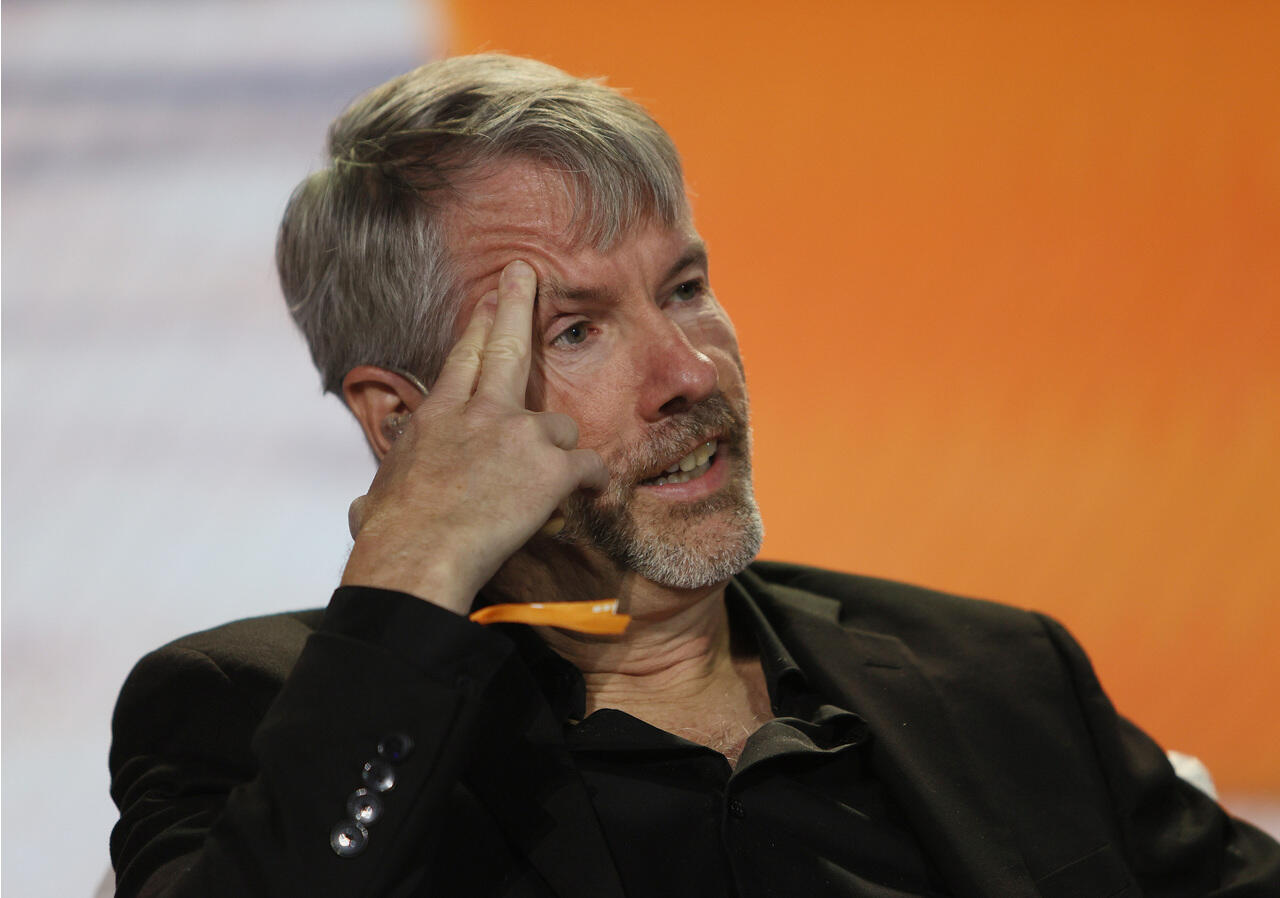Michael Saylor Presents New Bitcoin Proposal to U.S. Government
17.02.2025 10:00 1 min. read Alexander Zdravkov
Michael Saylor has put forward a bold proposal for the United States to secure a dominant position in Bitcoin by selling off its gold reserves and using the proceeds to purchase 20% of the global BTC supply.
He argues that Bitcoin is not just a currency but a form of capital, much like gold has historically been, and believes the U.S. should act swiftly to establish financial superiority in the digital asset space.
According to Saylor, the U.S. government could swap its Treasury bonds for Bitcoin, ensuring that it holds a significant share of the network before other nations or institutions accumulate too much.
He likened such a move to transformative moments in history, such as the Louisiana Purchase or acquiring Alaska—suggesting that locking in a massive Bitcoin reserve now would provide unparalleled long-term benefits.
He also suggested that Bitcoin could serve as a viable alternative to U.S. Treasury bonds, positioning it as a superior store of value in an era of growing economic uncertainty.
Saylor even went as far as to propose that the U.S. government could print money to finance these Bitcoin purchases, accelerating its control over the world’s leading digital asset.
His vision extends beyond simple investment; he sees Bitcoin evolving into the “World Reserve Capital Network,” with the United States at the center of this global financial shift.
-
1
Robert Kiyosaki Says Crypto Is Key to Building Wealth in a Failing System
27.06.2025 10:00 1 min. read -
2
Franklin Templeton Warns of Serious Risks in Institutional Bitcoin Treasury Strategies
03.07.2025 18:12 2 min. read -
3
Top Public Companies by Bitcoin Holdings
02.07.2025 10:00 2 min. read -
4
Billionaire Says ‘Sell Your House, Buy Bitcoin’: Fiat Collapse Is Coming
05.07.2025 12:00 2 min. read -
5
American State Bans Crypto Investments and Payments in Sweeping New Law
01.07.2025 14:33 2 min. read
Here’s How Bitcoin Reacted to the June PPI Report
Bitcoin showed a brief bullish reaction to the June U.S. Producer Price Index (PPI) release at 12:30 UTC, but the move quickly lost steam as traders digested the broader implications of the data.
Bitcoin ETFs Record $403M Inflows as BlackRock Leads Nine-Day Streak
U.S.-listed spot Bitcoin ETFs continue to post strong inflows, recording their ninth consecutive day of net positive investment activity on Tuesday.
Strategy Claims It Can Weather a Bitcoin Crash to $20K Without Trouble
Chaitanya Jain, Bitcoin strategy manager at Strategy, has pushed back against online speculation that the company’s fate is tightly bound to the price of Bitcoin.
Cantor Fitzgerald-backed SPAC Targets $4 Billion Bitcoin Purchase
Brandon Lutnick, son of U.S. Commerce Secretary Howard Lutnick, is reportedly finalizing a multibillion-dollar Bitcoin acquisition deal through a special purpose acquisition company (SPAC) backed by Cantor Fitzgerald.
-
1
Robert Kiyosaki Says Crypto Is Key to Building Wealth in a Failing System
27.06.2025 10:00 1 min. read -
2
Franklin Templeton Warns of Serious Risks in Institutional Bitcoin Treasury Strategies
03.07.2025 18:12 2 min. read -
3
Top Public Companies by Bitcoin Holdings
02.07.2025 10:00 2 min. read -
4
Billionaire Says ‘Sell Your House, Buy Bitcoin’: Fiat Collapse Is Coming
05.07.2025 12:00 2 min. read -
5
American State Bans Crypto Investments and Payments in Sweeping New Law
01.07.2025 14:33 2 min. read


